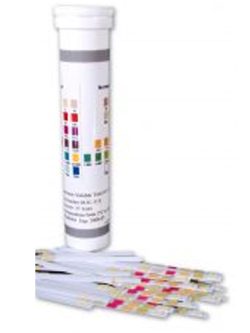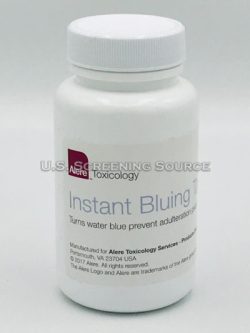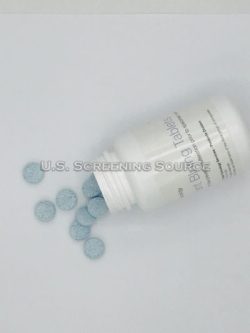Drug Test Adulteration Information: Tampering with a Drug Test
What is Adulteration?
Adulteration is the tampering of a urine specimen with the intention of altering the test results. Users of illicit drugs have attempted to defeat drug tests by adding adulterants to the sample after collection as a way to invalidate the testing procedure. Adding household chemicals such as detergents, bleach, and soaps or diluting samples by drinking large quantities of liquid are some of the creative ploys that abusers use to mask positive samples. One of the best ways to test for adulteration is to look for certain characteristics such as pH, oxidization, specific gravity, color and temperature. Many techniques have been devised for this purpose, including:
- Eating or drinking substances that the donor believes will chemically alter drug test results.
- Adding substances (salt, vinegar, bleach, detergent, Drano, Visine, etc.) directly to the urine sample to chemically alter test results.
- Diluting the urine sample, e.g., by drinking large amounts of liquid, taking a diuretic to increase urination, or adding water directly to the specimen to lower the concentration of the drug so that it becomes undetectable by the test.
- Substituting the donor’s specimen with someone else’s drug-free urine.
-
Color – A clear color may indicate that the sample has been watered down. Unadulterated, normal urine should be pale to dark yellow or amber in color. However, a sample should not be considered positive by color alone, but should be suspect for closer examination.
-
Temperature – The temperature os a urine specimen should be between 91 and 98 degrees when checked within 4 minutes of collection. Urine that is submitted at body temperature will exceed 90.50 degrees Fahrenheit. A specimen that fails below that range us suspect.
How can I guard against adulteration when collecting samples?
Direct observation of the donor as he/she provides the sample is a foolproof way to prevent specimen substitution or the direct addition of foreign substances to the sample. However, direct observation is commonly considered an infringement of individual privacy and is rarely done, especially in pre-employment and other workplace testing.
There are, however, other preventive measures you should take:
- Federal guidelines suggest, for example, that donors not be permitted to wear coats or bulky clothing or carry purses when giving samples, that they present adequate identification before giving samples, and that sample temperature be immediately tested.
- The collection area, usually a restroom, can be secured by turning off the hot water tap, putting a coloring agent in the toilet bowl, and inspecting the area for concealed adulterants. Donors can be required to wash their hands just before giving a sample, hampering their ability to conceal adulterants in the palm of their hand or even under the fingernails.
U.S. Screening Source offers products to help guard against adulteration.
Adulteration Protection
Adulteration Tests
Targets: Bleach, Creatinine, Glutaraldehyde, Nitrite, pH, Pyridinium Chlorochromate, Specific Gravity
Creatinine – This test covers the most common form of specimen tampering: specimen dilution. Dilution using diuretics is also often referred to as “flushing.”
Glutaraldehyde– This covers a class of chemicals not normally found in human urine. Common occurrences are the additive of such products, such as Clear Choice or UrinAid.
Nitrites- This covers a class of chemicals not normally found in human urine. Common occurrences are the additive of such products, such as Klear or Whizzies.
Oxidants and PCC-Tests for the presence of oxidizing reagents such as bleach, hydrogen peroxide, and pyridinium chlorochromate (PCC). Normal urine should contain no trace of oxidants.
pH- Tests for the presence of acidic or alkaline adulterants in urine. Normal pH levels should be in the range of 4.0 to 9.0. Values outside of this range may indicate the sample has been “spiked” or altered.
Specific gravity- Tests for the viscosity of the urine sample. Specific Gravity tests for sample dilution. The normal range is from 1.003 to 1.030 Values outside this range should be considered adulterated.




